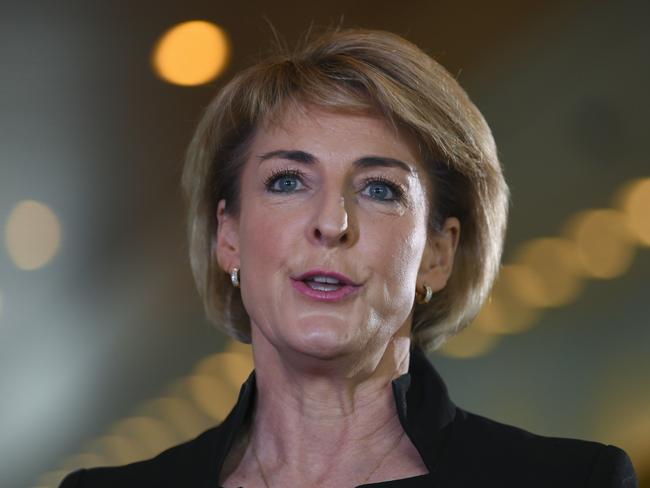New survey reveals Australian university graduates are dissatisfied with their degrees
Widespread dissatisfaction with universities has been laid bare in a new survey, with graduates saying they are not being taught the right skills and they should have chosen vocational training instead.
Education
Don't miss out on the headlines from Education. Followed categories will be added to My News.
The dissatisfaction many Australian university graduates feel in regard to their tertiary education has been laid bare in a new report, with more than one in four saying they should have opted for vocational training instead.
The survey of 1000 Australians by education company Pearson, part of a global research project involving 11,000 learners, showed that 42 per cent of respondents who had degrees said their university education did not prepare them for their career.
If they had to make the choice again, 27 per cent of survey respondents who were graduates said they would opt for trade or vocational training instead of university.
Another 10 per cent said they would go straight to work after leaving high school, bypassing tertiary education altogether.

Fifty-eight per cent of Australian respondents agreed with the statement that universities weren’t teaching the right skills for today’s job market.
Such findings “point to the level of value that graduates think they’re getting from university,” said Paul Wappett, Chief Executive of the Australian Institute of Business.
“In the past a uni degree was a ticket to materially greater earnings than if you hadn’t undertaken a degree. It’s not the differentiator it once was,” he said.
Mr Wappett said there was a “legitimate criticism” that Australian universities were not teaching enough topical subjects, but it was also the case that many big companies had wound back their graduate intake programs, which had previously enabled university leavers to adapt their learning to real-life situations.


“The (higher education) sector can do more to be much more contemporary to ensure that the degree a student earns equips them to be successful in their careers,” Mr Wappett said.
Curriculums should be updated regularly, he said, citing blockchain in finance and the use of big data in marketing as two topics where industry practice was fast outstripping what was being taught in many university courses.
The Pearson research had vastly different results to a Graduate Outcomes Survey undertaken by the Social Research Centre for the federal government in 2018, which found nearly 80 per cent of respondents were satisfied overall with their course experience.
Nearly 73 per cent of undergraduates were in full-time employment four months after completing their degree, and 87 per cent of undergraduates were employed overall in the same period, the study found.
Universities Australia Chief Executive Catriona Jackson said both students and employers have consistently high levels of satisfaction with university education.
“Australian universities are constantly innovating to enhance the quality of teaching and learning and student support services,” she said.
“There are strong student satisfaction levels across the country.”

David Barnett, Pearson Asia Pacific Managing Director, told News Corp that while universities “are here to stay” the report “underlined the need for the sector to innovate”.
“Like many of our western markets in the study, Australian respondents demonstrated an
openness to alternate pathways to learning - vocational or technical training is often believed to be a better path than a traditional four-year degree,” he said.
“This sentiment is even higher among younger populations like GenZ and Millennials who are
beginning to feel that a formal education may not be as important as it once was.”
Pearson is working with several Australian universities including Monash, Griffith and Adelaide to offer shorter, more intensive learning modules, Mr Barnett said.
“Students appreciate the way the model works,” he said. “People want more bite size chunks of content.”
The rise of so-called “micro-credentialling” and “stackable degrees” was a way in which universities were providing more flexible and workplace-specific training, and there was room for more expansion in that area, he said.
RELATED:
Lose the university snobbery — a trade will make you rich
Is sending your kid to uni really worth it?
The report comes as Employment Minister Michaelia Cash announced a $1.5 billion Skilling Australians Fund to encourage young people to consider trades rather than just progressing from school into university.
“Young people, and their parents, need to see that … blue collar jobs come with great wages. A university degree is not superior to a VET (Vocational Education and Training) pathway,” Ms Cash said.
“The federal government is encouraging high school students and their parents to consider the options available to them. University isn’t the only option and we want to make sure young (people) explore opportunities and realise their potential.”
Census data from 2016 showed almost a quarter (24 per cent) of youths and adults in Australia had completed a Bachelor Degree or above, up from 18 per cent in 2006. And 56 per cent of Australians aged 15 years and up now hold a post-school qualification, up from 46 per cent in 2006.


